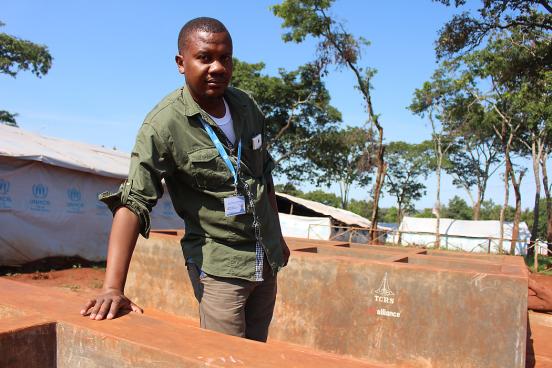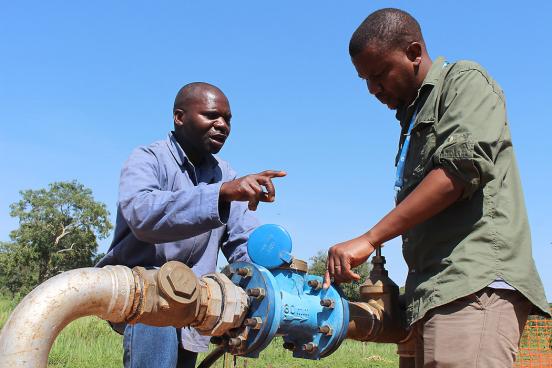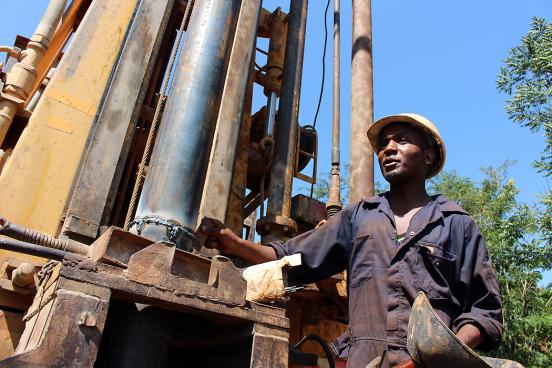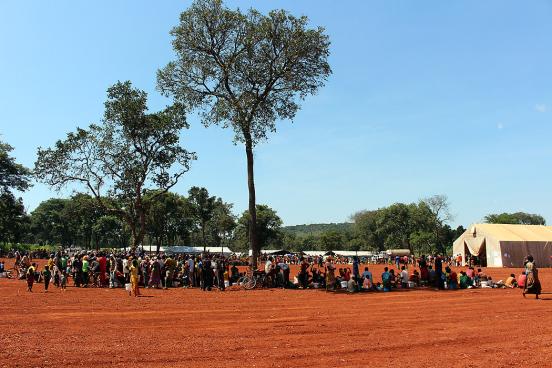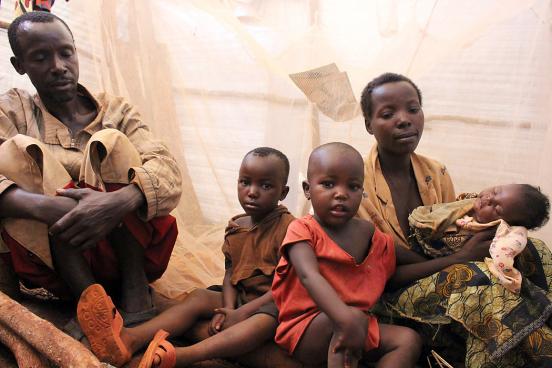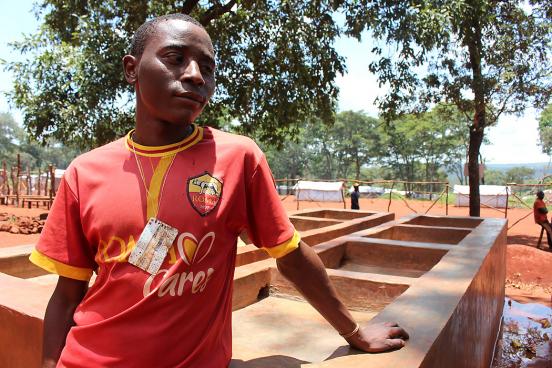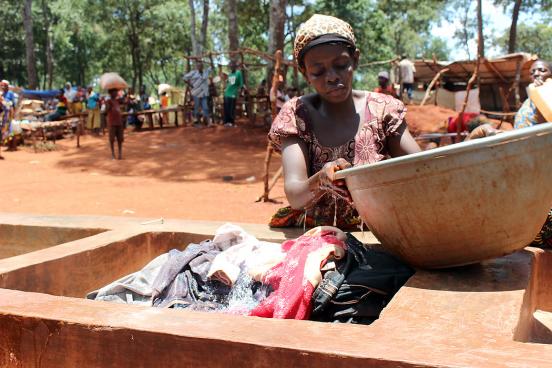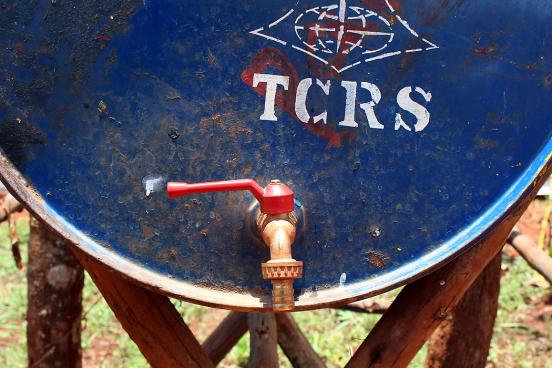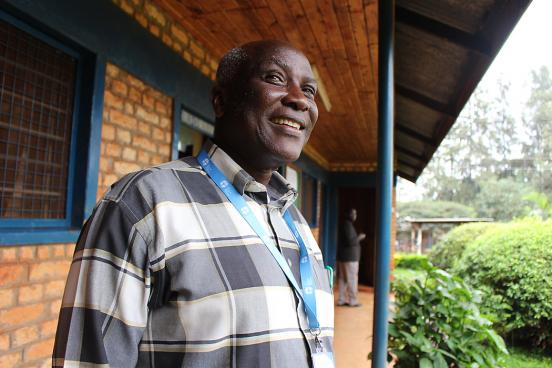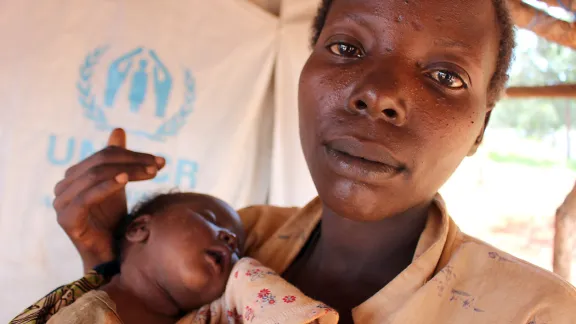
Hatungaimana Justina gave brith to baby Furaha Eliza just days after fleeing her native Burundi. She and her family made it to the safey of the Mtendeli camp where LWF partner, Tanganyika Christian Refugee Service drills boreholes that supply water to the camp. Photo: LWF/S.Cox
(LWI) - Already exhausted, Burundian refugee Hatungaimana Justina gave birth in the Mtendeli refugee camp in west Tanzania days after arriving there.
Clean water critical in camps
In refugee camps, a supply of clean water is essential, more so for breastfeeding women like Hatungaimana, whose daughter, Furaha Eliza, is one of more than 2000 Burundian babies born in Tanzanian refugee camps in the last 12 months, according to the United Nations.
In April last year, Burundian government militia began a crack down on dissident political voices, forcing an estimated 250,000 people, including Hatungaimana and her family, into exile in neighbouring countries. Tanzania is the largest recipient of refugees.
Hatungaimana and her family made it to the Mtendeli camp, which first housed refugees in 1994 and was recently re-opened after nine years.
Tanganyika Christian Refugee Service (TCRS), the diaconal arm of the Evangelical Lutheran Church of Tanzania and a partner of LWF World Service, is a major supplier of fresh water to the camp.
Camp expansion
At one site, a kilometer or so out of the camp, TCRS has commissioned the drilling of boreholes. Heavy machinery pounds a drill dozens of metres beneath the surface of the earth at a spot where geological testing has proven the presence of water. This is the second borehole drilled by TCRS around the countryside of Mtendeli camp, which hosts just over 5,300 people.
The lush countryside belies the acute shortage of water faced by the region. Without underground water supplies, Mtendeli would not have re-opened. A river has dried up and no other source of water exists. A secure water supply is a precondition to expanding the camp and opening it to more refugees, as well as to the re-opening of another larger camp nearby.
More boreholes must be drilled before the hot season in April, otherwise the situation could be disastrous, says TCRS refugee program coordinator Albert Temu. Nearly 300 people arrive in Tanzania each day and tens of thousands need to be moved from a nearby reception center to camps like Mtendeli.
Ongoing unrest in Burundi
Since the early 1960s, TCRS has supported Burundian refugees fleeing to Tanzania. They thought they were finally closing the gates to the camps in 2007 when peaceful elections brought to stability to Burundi. In the years after its closure, water facilities in the camp were vandalized or left to deteriorate.
In May last year, TCRS came back to Mtendeli to drill boreholes, build latrine blocks in neighborhoods and the hospital, police station, food distribution centre and the health centre, as well as install clothes washing stands around the camp and distribute relief goods.
Provision of water is priority for camp management. In total, aid agencies will drill a total of 10 boreholes, says TCRS water sanitation and hygiene engineer Shufaa Mweta.
She says the camp is not without its problems. The neighborhood latrines are overcrowded with eight families sharing a single latrine. While each of the two toilet facilities are segregated by gender, still about 40 people use just two latrines each day.
TCRS Kibondo project coordinator Terry Raphael said the influx was putting real pressure on the water supplies and more help was urgently needed
“We want to see how much more we can explore so that more refugees can be assisted and get as much water as per international standards. However, we need more support to get ground water.”
